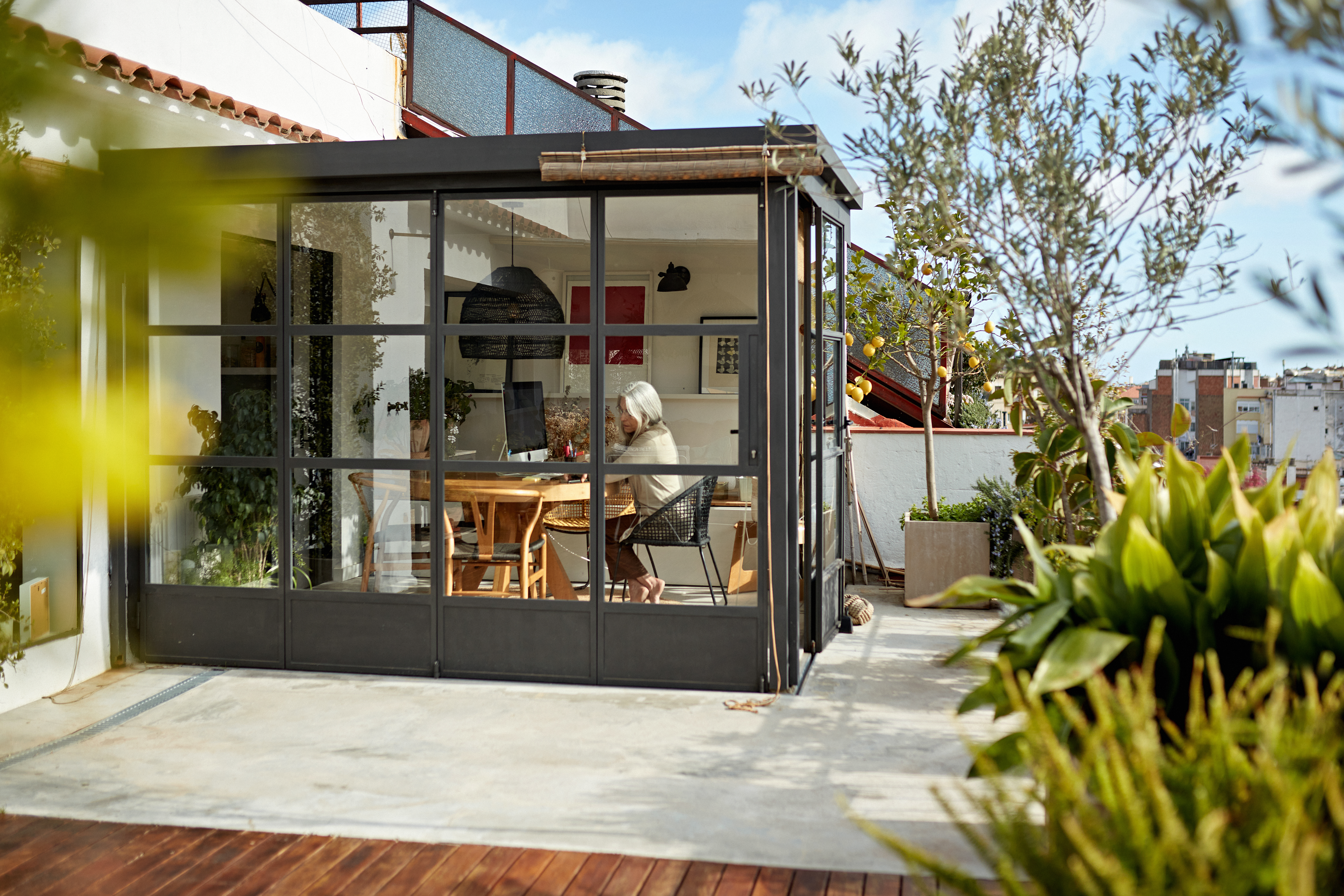When to Replace Your HVAC System & Costs to Consider

Use these ENERGY STAR questions to determine if your HVAC system is on its last legs.The best heating and cooling (HVAC) system is one you don’t have to think about. In fact, you may not even give your HVAC a second thought until suddenly, your heater isn’t working during the cold winter months or your air conditioning fails during a sweltering summer heatwave.
Replacing a broken or old HVAC system is one of the best home renovation ideas for your family’s comfort. But how do you know when it’s time to replace your HVAC system or what kind of costs to anticipate?
This helpful guide will educate you on the costs and long-term benefits of replacing your HVAC system.
- When to Replace Your HVAC System
- Estimating HVAC Replacement Costs
- Factors Affecting HVAC Replacement Costs
- Long Term Savings of HVAC Replacement
- Consider an Energy Audit
Determining When to Replace Your HVAC System
Use these ENERGY STAR questions to determine if your HVAC system is on its last legs.
- Are your energy bills consistently high? This may mean your older HVAC system is not efficient and it’s running too often to compensate for poor air circulation.
- Is your AC, boiler, or furnace running a lot? This could point to an HVAC system that’s working too hard to make up for its shortcomings.
- Do you have bad air quality in your home? If you suddenly notice mold, mildew, dust, or humidity issues, a malfunctioning AC unit may be to blame.
- Does your system produce any “off” smells? In many cases, this may just be dust burning, but if there’s mold or melted wires, there’s a more serious issue.
- Is the cost of the repair is more than half of a new system? When those dollar signs keep stacking up, consider cutting your losses and investing in a better HVAC system.
- Is your HVAC system noisy? This could mean you have an undersized duct or indoor coil issues.
- Is your heat pump or AC older than a decade? 10 years is about the lifespan of either type of unit and you should consider a replacement as it nears the decade-mark.
- Is your furnace or boiler older than 15 years old? It’s probably too old to efficiently operate and might be time to invest in a new unit.
Pro Tip: Before you dive into replacing your entire HVAC system, you may want to check your house and HVAC for air leaks. This may save you both time and hassle and is typically a less expensive fix than getting an entirely new system.
HVAC Replacement Costs
If you’re budgeting for an HVAC overhaul, here are some national average costs on Fixr for reference.
Cost to replace an HVAC system:
- Inspection: Depending on your location, HVAC inspections will cost you between $90-$125 per hour.
- Replacement of full HVAC system: With parts and labor, a new HVAC system will cost you between $10,000-$14,000.
- Permits: If an HVAC technician recommends a full system replacement, you will pay a percentage of the total replacement or installation cost. This price varies depending on the state you live in but averages out to 10% of the total project price.
- Maintenance: Maintenance costs will vary. In some cases, you may be able to sign up for a flat rate with a company to do annual HVAC maintenance. This typically costs between $150-$300 and may include one or two tune-ups.
If you’d like an estimate personalized for your home project, you can get in touch with one of Ygrene’s Network of Independent Contractors to get customized pricing.

Factors Affecting HVAC Replacement Costs
- Weather and climate: If you live somewhere with extreme winters or summers, you will likely need a larger HVAC system. Maybe you live in a southern region that experiences heatwaves or you live where winters are extreme.
- Ducts: Ducts, the forgotten part of HVAC installments. They’re responsible for sending cool air throughout your home via built-in vents. If you’re installing a new HVAC, the ductwork may need to be adapted to fit the new unit. This can add anywhere from $1,200 to $4,200.
- Square footage: As you can imagine, a larger home is going to require a much larger HVAC system to match. The bigger the home, the more you’ll pay for a properly-sized HVAC system.
- Design and construction: If you have unsealed windows and little or no insulation, it’s going to be difficult for your HVAC system to keep the temperature consistent and comfortable throughout your home. Besides windows, you’ll also want to make sure that insulation is intact everywhere in your home (including floors and foundation).
- Type of HVAC units: If you choose a cheaper unit, you may pay less at the time of purchase but it could have a shorter lifespan that forces you to pay more out of pocket during the long term in repairs and maintenance costs. A higher-end unit costs more at the outset but may result in bigger savings over the long run.
Long Term Savings of HVAC Replacement
It may be daunting after seeing the costs. But! There are plenty of benefits to upgrading your HVAC system.
Utility savings
When you upgrade to a newer air conditioner, for example, you may save money on your utility bills. A modern AC could save you money by reducing your cooling costs by 20-40% according to the U.S. Department of Energy.
A new, efficient HVAC system may save you over $1,000 per year in total energy savings.
Property values
A major bonus to upgrading your HVAC system is increasing the overall property value of your house. A new HVAC system could be a determining factor in whether or not a prospective buyer decides on your house. A new HVAC system may increase your home’s value by 5.8%.
Health comfort
Newer air conditioning units help you avoid this issue with variable speed motors which encourage more air circulation, creating a more stable, regulated temperature.
In addition, a new HVAC system can combat dust, mold, and mildew issues that can exacerbate or cause health issues or trigger allergies.
Noise pollution reduction
Older HVAC systems can be loud! An inefficient HVAC is forced to run frequently to reach your desired interior temperatures, increasing the associated noises and putting more stress on your system. A new system may be quieter and more pleasant for a home environment.
Lower carbon footprint
The regulations for modern HVAC systems are much more strict when it comes to energy efficiency compared to decades past. In consideration of that, however, it’s important to note that not all HVAC systems have the same green certifications. It’s a good idea to look for models that meet ENERGY STAR certification guidelines because energy-efficient HVAC systems are as much as 25% more efficient than regular non-certified units.
Consider an Energy Audit
Even the most advanced HVAC system in the world won’t help you lower your utility bills if your home is leaking air through drafts. To get the most out of a new HVAC system, consider getting an energy audit from a certified professional. These inspections help you get a holistic idea of your home’s energy use. It can also help identify air leaks and problem areas where the air isn’t being properly circulated. In some regions, electric utility companies or local governments may subsidize the costs of energy efficiency assessments, but you’ll have to double-check for your specific area.
Takeaways
When you’re ready to upgrade or replace your HVAC system, it’s important that you take your entire home into consideration. Start off with an energy audit to find weak spots within your home that are wasting energy. In tandem with a new HVAC system, these steps can help your home become energy efficient and save you money. If you’re considering HVAC replacement, contact Ygrene to start your journey toward a more comfortable and healthy home for you and your family to enjoy.




